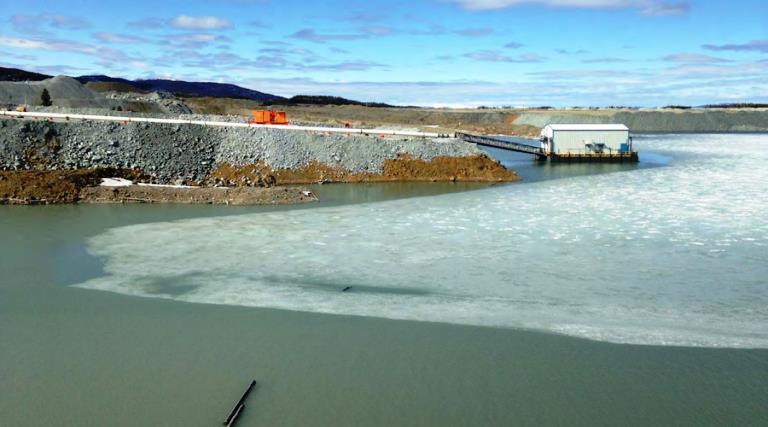The Mount Milligan gold and copper mine is located approximately 155 kilometers northwest of the city of Prince George in central British Columbia, Canada.
On September 23, 2021 at the BC Mine Reclamation Symposium hosted by the British Columbia Technical and Research Committee on Reclamation (TRCR), the mine’s operator, Centerra Gold, and Chu Cho Environmental were co-recipients of the Jake McDonald Annual Reclamation Award for their ongoing research into innovative techniques to solve reclamation, remediation and ecological restoration questions at the Mount Milligan Mine, and their partnership with local communities.
Mount Milligan’s environmental team, which includes Indigenous members from Nak’azdli Whut’en First Nation and McLeod Lake Indian Band, co-hosted tours of Centerra Gold’s Endako and Kemess sites for local Indigenous Nations to identify successful reclamation methods from these “living labs” to evaluate their application at the Mount Milligan Mine.
The experiences and lessons learned during the reclamation of the Kemess and Endako mines were leveraged into the development and implementation of a Proof-of-Concept reclamation demonstration field trial.
“Although the COVID-19 pandemic has been challenging for collaboration across communities, the Mount Milligan environmental team successfully brought together people from Indigenous Nations into the closure planning process, and used examples of exemplary reclamation to apply what was learned to guide site specific reclamation approaches at Mount Milligan,” says Tim Antill, awards subcommittee chair and incoming TRCR chair.
Centerra Gold previously received the Jake McDonald Annual Reclamation Award for Mount Milligan at the 2016 symposium.
The Tony Milligan Book Award was presented to Trevor Baker, Justin Straker and Max Ryan of Integral Ecology Group for the best paper delivered at the previous year’s BC Mine Reclamation Symposium, the first symposium held online.
The paper, “Development of a soil water balance-based model for predicting ecosystem occurrence on postclosure landforms” describes a system for more accurately predicting the soil moisture regime of reclaimed upland sites.
The TRCR also announced its 2021 Jake McDonald Memorial Scholarship recipient. Jaxon Reid of Kamloops, BC, is a second-year mining engineering student at BCIT who has previously completed 3 years as a biology major in the Bachelor of Science program at the University of Victoria. Jaxon switched to mine engineering last year after working in a metallurgical lab and becoming more focused on a career in mining.
“We have built on the strong success of our first ever virtual event last year, and are pleased to provide two full days of exciting virtual content (including multiple virtual mine tours) that covers a diverse range of topics plus an additional interactive shortcourse this year,” notes Alison Burton, outgoing chair of the TRCR.
The 44th Annual Mine Reclamation Symposium attracted more than 240 delegates ranging from biologists to engineers and geoscientists and representatives from Indigenous communities from throughout western Canada.
Photo (by Centerra Gold) shows the toxic pond at the Mount Milligan copper-gold project.
See British Columbia Technical and Research Committee on Reclamation website.

